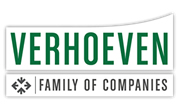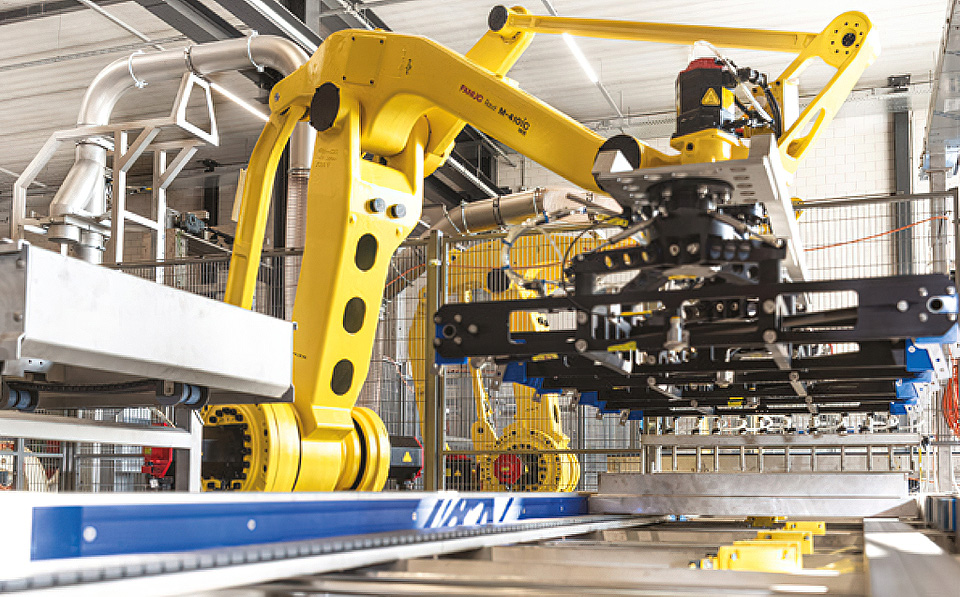Verhoeven Bakery Equipment Family focusses on intelligent developments
 WORKING TOGETHER ON THE BAKERY OF THE FUTURE
WORKING TOGETHER ON THE BAKERY OF THE FUTURE
Written by: Hans Stoop, CEO of the Verhoeven Family of Companies (pictured)
With the recent acquisition of the company Van den Akker Electric Engineering, Verhoeven Family of Companies (mother company of Verhoeven Bakery Equipment Family / BVT/ NewCap /Vacuum Cooling & Baking Solutions / Bakepack) strengthens its capacity and market position in the field of automation and control and as a provider of turnkey solutions.
 Hans Stoop, CEO of the organisation, sees this as a strategic step that is one of the conditions for giving even more emphatic shape to the pioneering role of the bakery branch, the Verhoeven Bakery Equipment Family. "We are now entering into an even closer cooperation with colleagues from Van den Akker in our projects at control level. It also enables us to work in-house on the Bakery of the Future. We are, in fact, on the threshold of a number of revolutionary developments that will drastically change the way bread and bakery products are made. There are many factors behind this: the strong call for more sustainable production and the reduction of waste, the labour shortage in many parts of the western world that will last for decades, the regulations that will force us to be more efficient and, last but not least, the impact on the economic and qualitative benefits that a new production strategy can bring. Ultimately, in years to come, the bakery of the future will produce goods from predictive knowledge with a suitable answer to the core question: "Who is going to order what, when?"
Hans Stoop, CEO of the organisation, sees this as a strategic step that is one of the conditions for giving even more emphatic shape to the pioneering role of the bakery branch, the Verhoeven Bakery Equipment Family. "We are now entering into an even closer cooperation with colleagues from Van den Akker in our projects at control level. It also enables us to work in-house on the Bakery of the Future. We are, in fact, on the threshold of a number of revolutionary developments that will drastically change the way bread and bakery products are made. There are many factors behind this: the strong call for more sustainable production and the reduction of waste, the labour shortage in many parts of the western world that will last for decades, the regulations that will force us to be more efficient and, last but not least, the impact on the economic and qualitative benefits that a new production strategy can bring. Ultimately, in years to come, the bakery of the future will produce goods from predictive knowledge with a suitable answer to the core question: "Who is going to order what, when?"
"A much more accurate adjustment of production to the development of demand is an absolute must. If the market does not regulate itself from the awareness of the importance of sustainability, we will slowly but surely be forced to do so, however,today, this alignment is still far from optimal. Bread still is one of the top three of the 'most thrown-away products'. We are jointly responsible for this throughout the chain, 'from soil to mouth' so it is up to us to take advange of the technological development that enables us to take important steps in reducing waste. The processing of information in production control is the core of the solution. The integration of our new intelligent partner will give us an extra boost in this respect".

Effects of waste
About 17% of global food production may go wasted, according to the UN Environment Programme's (UNEP) Food Waste Index Report 2021, with 61% of this waste coming from households, 26% from food service and 13% from retail. Bread still plays an important role in the contribution to the overall waste volume; globally, almost 900,000 tons of bread is wasted annually, roughly one third of the total production.
The environmental impact of discarded food increases the further down it occurs in the chain, because at that stage, all the added values (processing, transport, packaging, etc.) come into play. Stoop says: "This requires above all a change in mentality among consumers, which is already being strongly emphasised and developed by all the media attention. The initiatives we see in our segment to recycle bread are wonderful and contribute directly to reducing waste. But we must also take responsibility at the front end of the chain, because prevention is always better than cure. Due to the growth of the world population and the increasing scarcity of raw materials, also for the production of bread and pastries, intelligent solutions can contribute to a more careful, more balanced use of the ingredients that will only become more expensive due to their scarcity. 'Earth Overshoot Day', the date that marks the exhaustion of available resources for our annual needs, falls earlier and earlier, this year already on 29 July.
Vacuum Cooling & Baking
"Our organisation has been developing in this direction for years - just like many of our customers - and has taken various innovative initiatives such as the introduction of Vacuum Cooling & Baking. The development that we pioneered in this market a few years ago, is now contributing to a qualitative improvement in production output at various major partners around the world and certainly to greater efficiency through a substantial reduction in the production time and space required. The much shorter production time, especially in the time before re-cooling, has positive effects on minimising the formation of bacteria prior to packaging. This, in turn, has a beneficial effect on the shelf life of the end products. And a longer shelf life contributes to less waste."
Complexity calls for turnkey support
"Overarching control of production, where data helps the machines to integrate more and more detailed requirements, does lead to an increasingly complex organisation of the production environment.
In addition, the coordination of the various parts of the production line from start to finish has become an increasingly specialised issue. The design of production requires an overarching vision of the user that goes far beyond the quality of the final product. Our integration of labels and specialisations in the Family, now complemented by additional strength in intelligence, enables us to tackle these issues entirely and, from a turnkey partnership, to take customers through a highly attractive renewal of their production environment."

3110